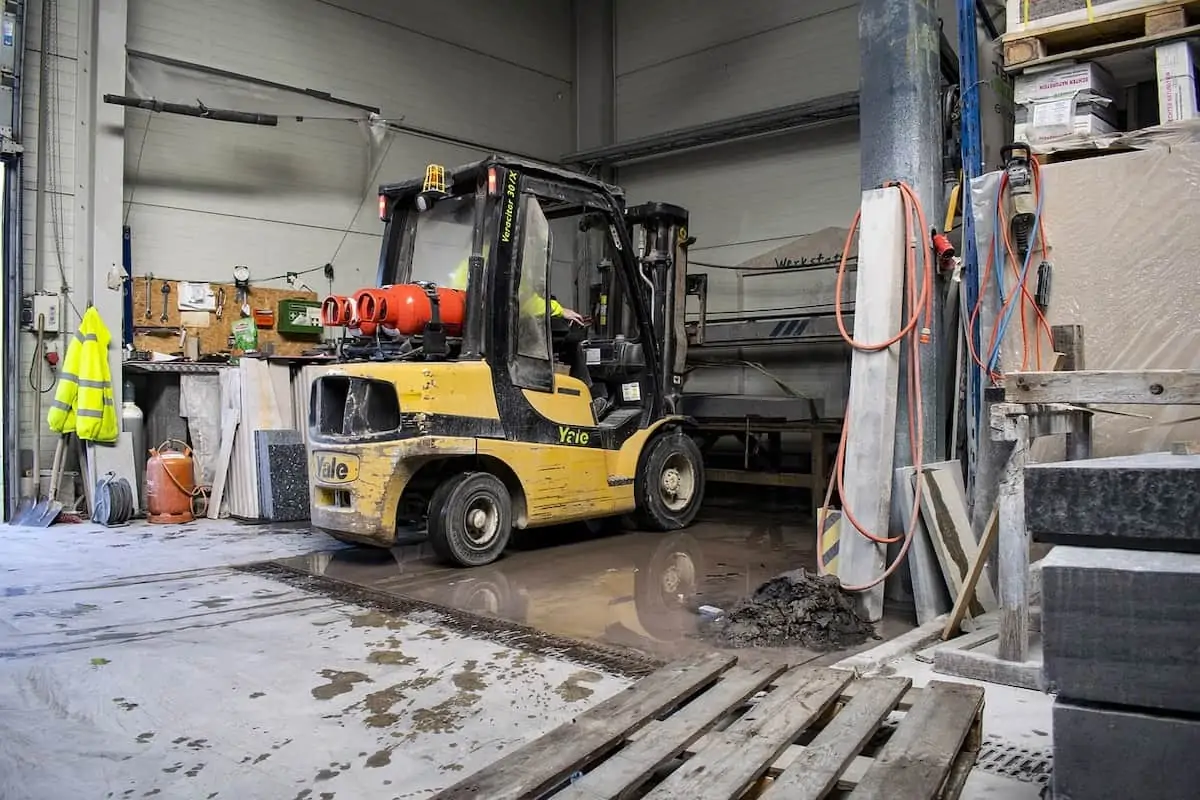Just by looking at one, you can tell that a forklift is a complex machine, and expensive too. When you spend a lot of money to buy one of these heavy-duty machines, you want it to last long and then a bit longer.
Here we bring you the whats, whens, hows and whys of forklift maintenance condensed in the following five tips to prolong forklift life.
Fluid change
If your forklift runs 8 hours a day on an average, its motor oil should be changed every three months. Some forklifts run more than 12 hours in a single day, and in that case, the oil should be changed every two months or earlier.
It is recommended to check motor oil, brake & transmission fluids and coolant regularly for level and viscosity. If the level of any of these fluids has dropped or the fluid appears thin and burnt out, there’s a problem that needs to be looked into by a professional forklift mechanic.
Transmission
As modern forklift transmissions are becoming more convenient for the operator, they are now more complex to fix if something goes bad. That is why preventive maintenance is highly recommended. The transmission system takes its fair share of abuse; therefore, changing transmission fluid every three months and rebuilding every 10,000 hours is important. In case you face any issue with your forklift’s transmission, call in an expert immediately for forklift transmission repair.
A transmission problem is progressive, which means the longer you put it off, the worse it gets.
Also, the life of the transmission system largely depends on the operator. Thus, it’s always advised to hire a certified, experienced operator for your forklift operations.
Brakes
Nothing causes more damage than brakes that don’t work. To protect your people, property and goods from a speeding forklift on the loose, it is important to check the brake fluid and brake pads regularly. You don’t need any tools for that. Hit the brakes to make sure the pedal does not go down too much; if it does, you need new brake pads.
Besides, checking the parking brake is also important to keep your forklift firm in place when loading or unloading.
Forks
When you are maneuvering through tight spaces, just inches away from the shelves, your forks should be straight as an arrow. If they are not, that means the stability is off. This can lead to serious consequences, such as causing a fully-loaded forklift to collapse.
Forklifts are built to carry heavy loads, and stability is crucial to their design. Therefore, the straightness of forks should be checked during routine maintenance procedures.
Don’t forget the tires
A forklift operating under heavy loads can lead to an accident if you don’t pay enough attention to the tire pressure. While low pressure kills your tires with a thousand cuts, high pressure can end it all with a single blow. Both are dangerous though.
Poor tires slow your forklift down and pose a serious threat to the operator. Therefore, it helps to keep a pressure gauge handy for measuring tire pressure every day.
Parting words for Forklift Life – Never skimp on maintenance
Sometimes you might think your forklift is working fine when actually it’s not. Or you might be working on a tight schedule, and forklift maintenance is the last thing on your priority list. In either case, you are damaging your forklift slowly and gradually.
This may result in major and frequent breakdowns, which are way more expensive to fix as compared to regular maintenance.
You do the math.

